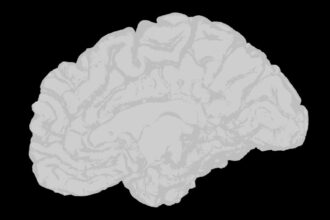Depersonalization-derealization is a complex psychological phenomenon that can leave you feeling detached from your own thoughts, feelings, or sense of self. It often manifests as a sense of observing yourself from outside your body, as if you are a spectator in your own life.
You may find yourself questioning whether you are truly present in the moment or if you are merely going through the motions of life without genuine engagement. Derealization, on the other hand, involves a sense of detachment from your surroundings. You might perceive the world around you as unreal or distorted, as if you are living in a dream or a movie.
This can create an overwhelming sense of alienation, making it difficult to connect with people or places that once felt familiar. Together, depersonalization and derealization can significantly impact your daily functioning and emotional well-being, often leading to feelings of anxiety and depression.
Key Takeaways
- Depersonalization-Derealization is a mental health condition characterized by feeling detached from oneself and the surrounding environment.
- Symptoms of Depersonalization-Derealization include feeling like an outside observer of one’s thoughts and actions, experiencing a sense of unreality, and emotional numbness.
- Causes and triggers of Depersonalization-Derealization can include trauma, stress, anxiety, and substance abuse.
- Diagnosis and assessment of Depersonalization-Derealization may involve a thorough psychological evaluation and ruling out other potential causes.
- Treatment options for Depersonalization-Derealization may include therapy, medication, and lifestyle changes to manage symptoms and improve quality of life.
Symptoms and Signs of Depersonalization-Derealization
The symptoms of depersonalization-derealization can vary widely from person to person, but they often include feelings of detachment from oneself and the environment. You may experience a sense of emotional numbness, where your feelings seem muted or absent altogether. This emotional disconnect can make it challenging to engage with others or enjoy activities that once brought you joy.
You might also notice that your thoughts feel fragmented or disjointed, contributing to a sense of confusion about your identity and purpose. In addition to emotional symptoms, physical sensations may accompany depersonalization-derealization. You might feel as though your body is not your own, experiencing a sense of heaviness or lightness that is difficult to explain.
Some individuals report visual distortions, such as objects appearing larger or smaller than they actually are. These symptoms can be distressing and may lead you to seek reassurance from others about your reality, further complicating your experience.
Causes and Triggers of Depersonalization-Derealization

Understanding the causes and triggers of depersonalization-derealization is essential for managing this condition effectively.
High levels of stress or trauma are often cited as significant triggers.
If you have experienced a traumatic event, such as an accident, abuse, or loss, your mind may resort to depersonalization as a coping mechanism to protect you from overwhelming emotions. Additionally, certain mental health conditions can predispose you to depersonalization-derealization. Anxiety disorders, depression, and post-traumatic stress disorder (PTSD) are commonly associated with these experiences.
Substance use can also play a role; for instance, the use of hallucinogenic drugs or excessive alcohol consumption may trigger episodes of depersonalization-derealization. Recognizing these triggers can empower you to take proactive steps in managing your mental health.
Diagnosis and Assessment of Depersonalization-Derealization
| Diagnosis and Assessment of Depersonalization-Derealization |
|---|
| 1. Clinical interviews |
| 2. Self-report questionnaires |
| 3. Structured diagnostic interviews |
| 4. Psychological assessments |
| 5. Observation and monitoring of symptoms |
Diagnosing depersonalization-derealization can be challenging due to its overlapping symptoms with other mental health conditions. A mental health professional will typically conduct a thorough assessment that includes a detailed history of your symptoms and experiences. You may be asked to describe the frequency and duration of your episodes, as well as any associated factors such as stressors or trauma.
Standardized assessment tools may also be utilized to evaluate the severity of your symptoms and their impact on your daily life. It’s crucial to be open and honest during this process, as accurate information will help guide your treatment plan. A proper diagnosis is essential not only for understanding your experiences but also for distinguishing depersonalization-derealization from other conditions that may require different therapeutic approaches.
Treatment Options for Depersonalization-Derealization
When it comes to treating depersonalization-derealization, a multifaceted approach is often most effective. Psychotherapy is one of the primary treatment modalities used to help individuals navigate their experiences. Cognitive-behavioral therapy (CBT) is particularly beneficial, as it focuses on identifying and challenging negative thought patterns that contribute to feelings of detachment.
Through therapy, you can learn coping strategies and techniques to ground yourself in reality. In some cases, medication may be prescribed to address underlying mental health conditions such as anxiety or depression that may exacerbate depersonalization-derealization symptoms. Antidepressants or anti-anxiety medications can help stabilize mood and reduce anxiety levels, making it easier for you to engage with therapeutic interventions.
It’s essential to work closely with a healthcare provider to determine the most appropriate treatment plan tailored to your specific needs.
Coping Strategies for Managing Depersonalization-Derealization

In addition to professional treatment, there are several coping strategies you can employ to manage depersonalization-derealization in your daily life. Mindfulness practices can be particularly effective in helping you reconnect with the present moment. Engaging in mindfulness meditation or deep-breathing exercises can ground you in reality and reduce feelings of detachment.
By focusing on your breath or the sensations in your body, you can cultivate a greater sense of awareness and presence. Another helpful strategy is to establish a routine that incorporates activities that bring you joy and fulfillment. Engaging in hobbies, spending time with loved ones, or participating in physical exercise can help anchor you in reality and provide a sense of normalcy amidst the chaos of depersonalization-derealization.
Journaling about your experiences can also serve as an outlet for processing emotions and tracking patterns in your symptoms over time.
Impact on Daily Life and Relationships
The impact of depersonalization-derealization on daily life can be profound and far-reaching. You may find it challenging to perform routine tasks or engage in social situations due to feelings of disconnection from yourself and others. This detachment can lead to difficulties in maintaining relationships, as friends and family may struggle to understand what you are experiencing.
You might feel isolated or misunderstood, which can exacerbate feelings of loneliness and despair. In professional settings, depersonalization-derealization can hinder your ability to concentrate and perform effectively at work or school. You may find it difficult to focus on tasks or participate in discussions, leading to decreased productivity and increased frustration.
Recognizing how these experiences affect various aspects of your life is crucial for developing strategies to cope and communicate effectively with those around you.
Co-occurring Conditions and Depersonalization-Derealization
Depersonalization-derealization often coexists with other mental health conditions, complicating the overall clinical picture. Anxiety disorders are particularly common among individuals experiencing these symptoms; the heightened state of anxiety can trigger episodes of detachment as a way for the mind to cope with overwhelming stressors. Similarly, depression can exacerbate feelings of disconnection and hopelessness, creating a cycle that is difficult to break.
Post-traumatic stress disorder (PTSD) is another condition frequently associated with depersonalization-derealization. Individuals who have experienced trauma may find themselves dissociating as a protective mechanism against painful memories or emotions. Understanding these co-occurring conditions is vital for developing an effective treatment plan that addresses all aspects of your mental health.
Support and Resources for Individuals with Depersonalization-Derealization
Finding support is essential when navigating the challenges of depersonalization-derealization. Connecting with mental health professionals who specialize in dissociative disorders can provide valuable insights and therapeutic interventions tailored to your needs. Support groups—whether in-person or online—can also offer a sense of community and understanding among individuals who share similar experiences.
Additionally, educational resources such as books, articles, and websites dedicated to mental health can help you gain a deeper understanding of depersonalization-derealization and its effects. These resources can empower you with knowledge about coping strategies and treatment options while fostering a sense of hope for recovery.
Research and Future Directions in Understanding Depersonalization-Derealization
Research into depersonalization-derealization is ongoing, with scientists striving to uncover the underlying mechanisms that contribute to these experiences. Advances in neuroimaging technology have allowed researchers to explore brain activity during episodes of depersonalization-derealization, shedding light on potential neurological correlates. Understanding how these experiences manifest at a biological level could pave the way for more targeted treatments in the future.
Moreover, there is growing interest in exploring the relationship between trauma and dissociation, particularly how early adverse experiences may shape an individual’s susceptibility to depersonalization-derealization later in life. As research continues to evolve, it holds promise for enhancing our understanding of this complex phenomenon and improving treatment outcomes for those affected.
Personal Stories and Experiences with Depersonalization-Derealization
Personal stories from individuals who have experienced depersonalization-derealization can provide valuable insights into the lived experience of this condition. Many people describe their journeys through moments of confusion and fear but also highlight resilience and hope for recovery. Sharing these narratives fosters connection among those who feel isolated by their experiences while offering validation that they are not alone in their struggles.
These stories often emphasize the importance of seeking help and finding effective coping strategies that work for each individual. Whether through therapy, support groups, or personal practices like mindfulness, many have found ways to navigate their experiences with depersonalization-derealization while reclaiming their sense of self and connection to the world around them. In conclusion, understanding depersonalization-derealization requires a multifaceted approach that encompasses its symptoms, causes, diagnosis, treatment options, coping strategies, and impact on daily life.
By fostering awareness and providing support for those affected by this condition, we can work towards reducing stigma while promoting healing and recovery.
Depersonalization-derealization disorder is a complex mental health condition characterized by persistent feelings of detachment from one’s body or surroundings, often described as feeling like an outside observer of one’s life. This disorder can significantly impact daily functioning and quality of life. For those seeking more information on mental health topics, including depersonalization-derealization, the article available on Unplugged Psychology provides valuable insights and resources. This website offers a range of articles and information that can help individuals better understand various psychological conditions and find appropriate support.
Learn More About Depersonalization & Derealization
FAQs
What is depersonalization-derealization?
Depersonalization-derealization is a mental health condition characterized by feeling detached from oneself (depersonalization) and feeling detached from the surrounding environment (derealization).
What are the symptoms of depersonalization-derealization?
Symptoms of depersonalization-derealization may include feeling like an outside observer of one’s thoughts, feelings, and body, feeling like the world is unreal or distorted, and experiencing emotional or physical numbness.
What causes depersonalization-derealization?
The exact cause of depersonalization-derealization is not fully understood, but it is believed to be related to a combination of biological, psychological, and environmental factors. It can be triggered by trauma, stress, anxiety, or substance abuse.
How is depersonalization-derealization treated?
Treatment for depersonalization-derealization may include therapy, medication, and stress management techniques. Cognitive-behavioral therapy (CBT) and mindfulness-based approaches have been found to be effective in managing symptoms.
Is depersonalization-derealization a common condition?
Depersonalization-derealization is considered relatively rare, with prevalence estimated to be around 1-2% of the population. However, it is possible that the condition is underreported due to stigma and lack of awareness.




